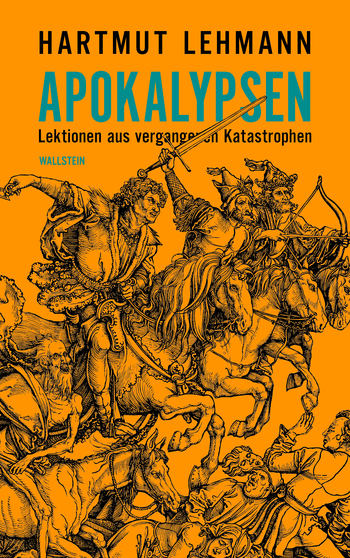Pandemics, wars, climate emergencies: people have underwent times of devastating disasters in the past. What can we learn from their experiences?
The pandemic, the climate catastrophe, new wars in Europe and the Middle East: we seem to be facing an unprecedented, extreme situation. But over the last 800 years, people in Europe have already had to face the apocalypse several times and feared the beginning of the end time. In the 14th century, the plague left a trail of devastation in its wake. In the late 16th and 17th century, a worsening climate caused an agonisingly long series of famines, epidemics and wars. In the 20th century, war and the destruction of human life on an unprecedented scale upset the political and moral order around the world. These extreme scenarios marked ruptures and were social stress tests.
The historian Hartmut Lehmann explains in a comprehensible style what these catastrophes meant for people in their everyday lives and what they remembered about them. He asks what role conspiracy theories played in all these events and who made a scapegoat. Last but not least, this book is about lessons from the existential threats of our past: how can they help us to overcome the challenges of our time?
Hartmut Lehmann, born in 1936, was founding director of the German Historical Institute in Washington, DC, and director of the Max Planck Institute for History in Göttingen. Lehmann’s reserarch specialises in medieval and modern history, the history of christianity as well as the history of religion.


